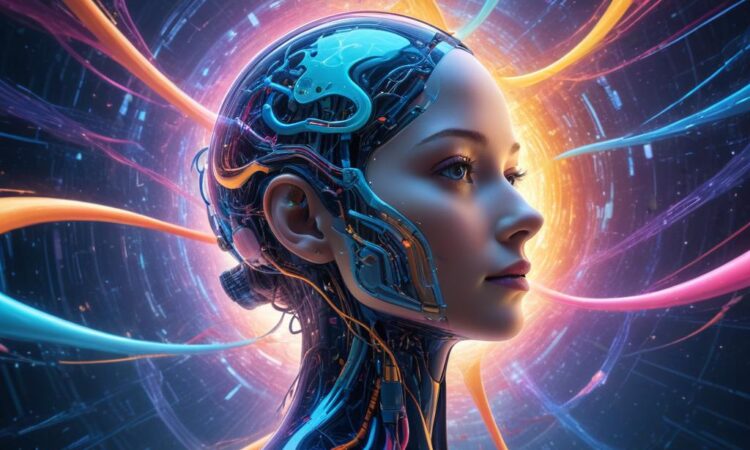Rise of Generative AI in Marketing
Introduction
Generative AI tools are rapidly transforming the marketing landscape. Their ability to create various forms of content, personalize advertising campaigns, and automate customer service interactions is leading to significant shifts in marketing strategies and raising crucial questions about the future of work in the creative industries. This article delves into the increasing adoption of generative AI in marketing, exploring its benefits, challenges, and implications.
Content Creation Revolution
One of the most significant impacts of generative AI is its ability to automate and enhance content creation. Marketing teams are leveraging AI to generate various types of content, including:
- Blog posts and articles: AI can generate outlines, draft content, and even write complete articles, freeing up marketers to focus on strategy and editing.
- Social media posts: AI can create engaging captions, hashtags, and even generate different variations of posts tailored to specific audiences.
- Email marketing campaigns: AI can personalize email subject lines, body copy, and calls to action, leading to improved open and click-through rates.
- Website copy: AI can generate compelling website copy that aligns with brand voice and target audience.
- Ad copy: AI can create variations of ad copy to test different messaging and optimize campaign performance.
The speed and efficiency gains from using AI for content creation are substantial. Marketers can produce a greater volume of content in less time, allowing them to reach wider audiences and increase brand visibility.
Personalized Advertising
Generative AI is revolutionizing personalized advertising by enabling marketers to create highly targeted and customized ads. AI algorithms can analyze vast amounts of customer data to identify patterns and preferences, allowing for the creation of ads that resonate with individual consumers. This level of personalization leads to:
- Increased engagement: Personalized ads are more likely to capture attention and generate interest.
- Improved conversion rates: By tailoring messaging to specific needs and preferences, marketers can increase the likelihood of conversions.
- Enhanced customer experience: Personalized advertising creates a more relevant and engaging experience for consumers.
- Optimized campaign performance: AI can continuously refine and optimize ad campaigns based on real-time performance data, maximizing ROI.
The ability to deliver highly personalized advertising is a game-changer for marketers, enabling them to build stronger relationships with customers and drive greater business results.
Customer Service Automation
Generative AI is also transforming customer service by automating responses to common queries and providing instant support. AI-powered chatbots can handle a wide range of customer inquiries, freeing up human agents to focus on more complex issues. Benefits of AI-powered customer service include:
- 24/7 availability: AI-powered chatbots can provide support around the clock, ensuring customers receive assistance whenever they need it.
- Reduced response times: AI can provide instant responses to many common questions, reducing customer wait times.
- Improved efficiency: Automating routine tasks frees up human agents to focus on more complex and challenging issues.
- Cost savings: By automating customer service, companies can reduce the need for large customer service teams.
- Personalized interactions: AI chatbots can be programmed to provide personalized responses based on customer data.
The integration of AI in customer service enhances customer satisfaction and operational efficiency.
Challenges and Ethical Considerations
While generative AI offers numerous advantages, it also presents challenges and raises ethical considerations. These include:
- Data bias: AI models are trained on data, and if that data is biased, the AI’s output will also be biased. This can lead to unfair or discriminatory outcomes.
- Job displacement: The automation capabilities of AI could lead to job displacement in certain areas of marketing.
- Transparency and explainability: Understanding how AI models arrive at their decisions can be difficult, raising concerns about transparency and accountability.
- Maintaining creativity and originality: Over-reliance on AI could stifle human creativity and originality.
- Misinformation and deepfakes: Generative AI can be used to create convincing but false content, including deepfakes, which could have serious consequences.
Addressing these challenges requires careful consideration and responsible development and deployment of generative AI technologies.
The Future of Marketing and Creative Jobs
The rise of generative AI is undoubtedly reshaping the marketing landscape. While concerns about job displacement are valid, it’s crucial to view AI as a tool to augment human capabilities rather than replace them entirely. The future of marketing likely involves a collaborative approach where humans and AI work together. Marketers will need to adapt and develop new skills to effectively leverage AI tools. This includes:
- AI literacy: Understanding how AI works and its capabilities.
- Data analysis: Analyzing data to understand customer behavior and optimize AI models.
- Strategic thinking: Focusing on high-level strategy and creative direction.
- Ethical considerations: Understanding the ethical implications of using AI in marketing.
- Prompt engineering: Crafting effective prompts to elicit desired outputs from AI models.
By embracing AI and developing the necessary skills, marketers can position themselves for success in this evolving landscape. The focus will shift from repetitive tasks to strategic thinking, creative problem-solving, and ensuring ethical and responsible AI implementation.
Conclusion
The integration of generative AI into marketing is accelerating, offering unprecedented opportunities for increased efficiency, personalization, and automation. While challenges exist, addressing ethical considerations and fostering collaboration between humans and AI will be key to unlocking the full potential of this transformative technology. The future of marketing is likely to be defined by a synergistic relationship between human ingenuity and artificial intelligence.

